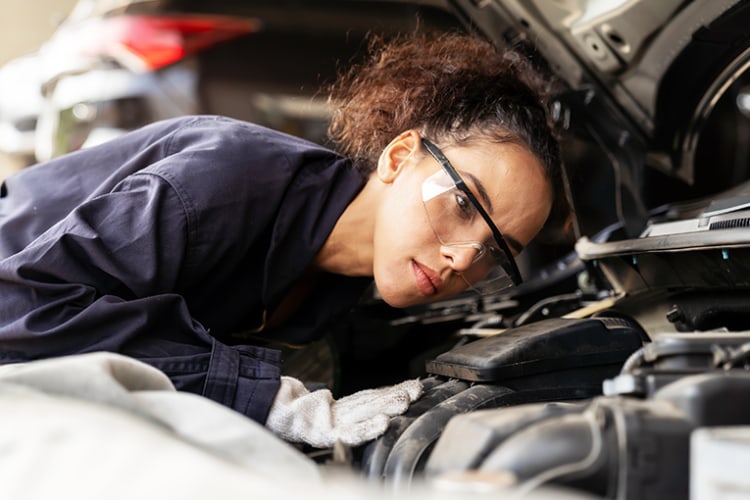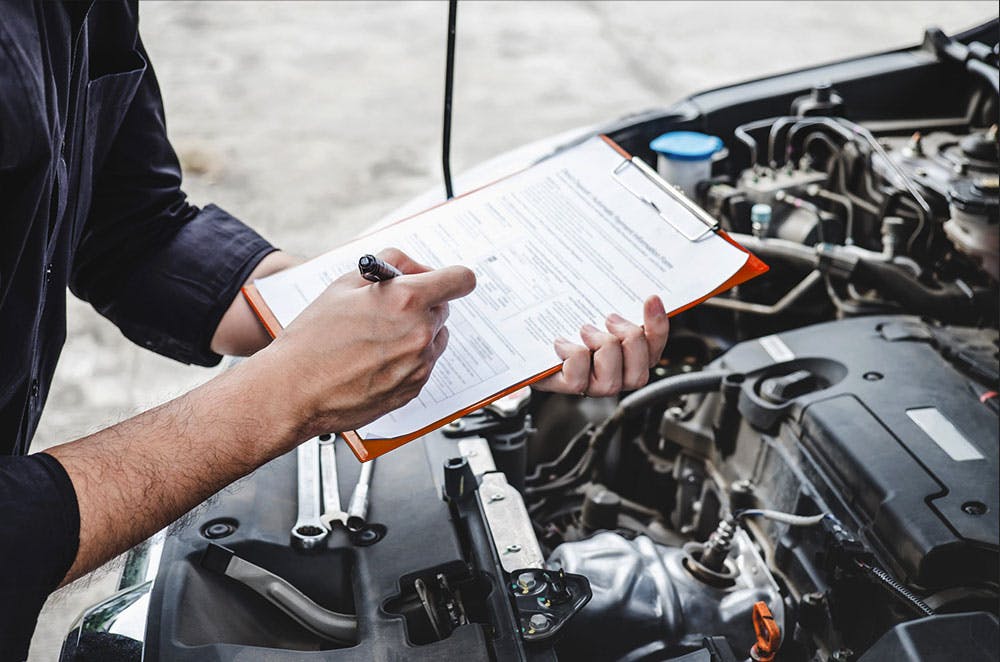Featured
Regular maintenance is crucial to making sure that your automobile runs smoothly and stays trusted. One of the most vital elements of lorry treatment is inspecting and preserving your car's liquids. Fluids are necessary for the appropriate functioning of various automobile systems, and neglecting them can lead to significant problems that may influence both the performance and durability of your cars and truck. Below's why it's so vital to remain on top of your vehicle's liquids and exactly how to keep them in ideal condition.
![]()
![]()
How to Examine and Preserve Your Vehicle's Fluids. Review the Owner's Guidebook: Your automobile's proprietor's handbook provides specific standards for checking and keeping different liquids. Follow the suggested intervals for liquid checks and substitutes.
Check Liquid Degrees Regularly: Make it a practice to inspect liquid levels every month, especially soon journeys. Many liquids can be checked easily utilizing dipsticks, assesses, or sight glasses.
![]()
Seek Leakages: Evaluate for any kind of noticeable leakages around liquid tanks, pipes, and under the car. Dripping fluids could be a sign of worn hoses or seals that require attention.
Utilize the Right Fluids: Always utilize the manufacturer-recommended liquids for your vehicle. Using the wrong sort of liquid can trigger damage and might void your service warranty.
Modification Fluids When Needed: Gradually, fluids deteriorate and lose their efficiency. Follow your car's solution timetable for fluid changes to guarantee that your automobile remains to run efficiently.
Verdict. Maintaining the appropriate degrees and top quality of your car's fluids is essential for its overall health and efficiency. Engine oil, transmission liquid, coolant, brake liquid, power guiding liquid, and windshield washer liquid all play crucial duties in keeping your auto running smoothly. Routinely inspecting and keeping these liquids aids stop costly fixings, ensures optimum efficiency, and enhances security. By making fluid checks component of your normal upkeep regimen, you can prolong the life of your car and take pleasure in a safer, extra trusted driving experience.
- Engine Oil: The Lifeline of Your Engine. Engine oil is one of the most important fluids in your lorry, as it lubricates the engine's moving parts, lowers friction, and helps control temperature. Over time, engine oil breaks down and becomes less reliable, which can lead to boosted wear and tear on engine components.

- Transmission Fluid: Guaranteeing Smooth Equipment Shifts. Like engine oil, transmission fluid can deteriorate over time, leading to slipping equipments, rough shifts, and poor fuel performance. Consistently inspecting and transforming your transmission liquid aids maintain smooth transmission operation, lowers the danger of transmission damage, and boosts the automobile's overall performance.
- Coolant/Antifreeze: Maintaining the Engine Cool. Coolant (or antifreeze) is a vital fluid that stops your engine from overheating by regulating its temperature. It flows with the engine, soaking up excess warmth and carrying it to the radiator to be cooled. Coolant likewise prevents the engine from cold in winter, therefore the term "antifreeze." Over time, coolant can become polluted or shed its efficiency, bring about engine getting too hot and possible damage. Guaranteeing that your vehicle has the best level and concentration of coolant can assist avoid overheating, decrease the risk of engine damage, and lengthen the life of your automobile.
- Brake Fluid: Crucial for Security. Brake liquid is important for the correct operation of your vehicle's stopping system. It moves pressure from the brake pedal to the brake components, permitting you to slow down or quit the vehicle. Reduced or polluted brake fluid can result in poor braking efficiency, causing unsafe scenarios when traveling. Routinely inspecting the brake liquid level and top quality, and changing it when necessary, assists make certain that your automobile's braking system operates as it should. It may be time to inspect the brake fluid. if you discover a decline in braking responsiveness or a soft brake pedal.

- Power Guiding Liquid: Smooth Guiding Performance. Power steering liquid allows for simpler steering by providing hydraulic stress to the guiding mechanism. Without sufficient power steering fluid, steering can come to be difficult and less receptive, potentially making it more challenging to steer the automobile. Leakages or low levels of power steering liquid can lead to guiding issues, including whimpering sounds or rigid steering. Frequently checking and keeping the correct fluid degrees makes certain that your guiding remains smooth and easy to control, particularly when turning or parking.
- Windscreen Washer Fluid: Clear Vision for Safe Driving. While it may appear much less crucial than engine or brake fluid, windshield washing machine fluid plays an important duty in guaranteeing clear visibility while driving. This fluid is in charge of cleaning your windshield when dirt, dirt, or insects accumulate, particularly during lengthy drives. Keeping the windshield washer liquid at a sufficient level helps make sure that your windshield stays tidy, especially in unfavorable climate condition, which adds to safer driving.
How to Examine and Preserve Your Vehicle's Fluids. Review the Owner's Guidebook: Your automobile's proprietor's handbook provides specific standards for checking and keeping different liquids. Follow the suggested intervals for liquid checks and substitutes.
Check Liquid Degrees Regularly: Make it a practice to inspect liquid levels every month, especially soon journeys. Many liquids can be checked easily utilizing dipsticks, assesses, or sight glasses.

Seek Leakages: Evaluate for any kind of noticeable leakages around liquid tanks, pipes, and under the car. Dripping fluids could be a sign of worn hoses or seals that require attention.
Utilize the Right Fluids: Always utilize the manufacturer-recommended liquids for your vehicle. Using the wrong sort of liquid can trigger damage and might void your service warranty.
Modification Fluids When Needed: Gradually, fluids deteriorate and lose their efficiency. Follow your car's solution timetable for fluid changes to guarantee that your automobile remains to run efficiently.
Verdict. Maintaining the appropriate degrees and top quality of your car's fluids is essential for its overall health and efficiency. Engine oil, transmission liquid, coolant, brake liquid, power guiding liquid, and windshield washer liquid all play crucial duties in keeping your auto running smoothly. Routinely inspecting and keeping these liquids aids stop costly fixings, ensures optimum efficiency, and enhances security. By making fluid checks component of your normal upkeep regimen, you can prolong the life of your car and take pleasure in a safer, extra trusted driving experience.
Latest Posts
Discover Cost-Effective Auto Repairs with Montclare’s Limited-Time Service Specials
Published en
1 min read
How Chicago Drivers Pick Montclare Auto Repair for Trusted Service and Big Savings
Published en
1 min read
Discover Limited-Time Auto Repair Specials in Chicago at Montclare Auto Repair
Published en
1 min read
More
Latest Posts
Discover Cost-Effective Auto Repairs with Montclare’s Limited-Time Service Specials
Published May 24, 25
1 min read
How Chicago Drivers Pick Montclare Auto Repair for Trusted Service and Big Savings
Published May 23, 25
1 min read
Discover Limited-Time Auto Repair Specials in Chicago at Montclare Auto Repair
Published May 23, 25
1 min read